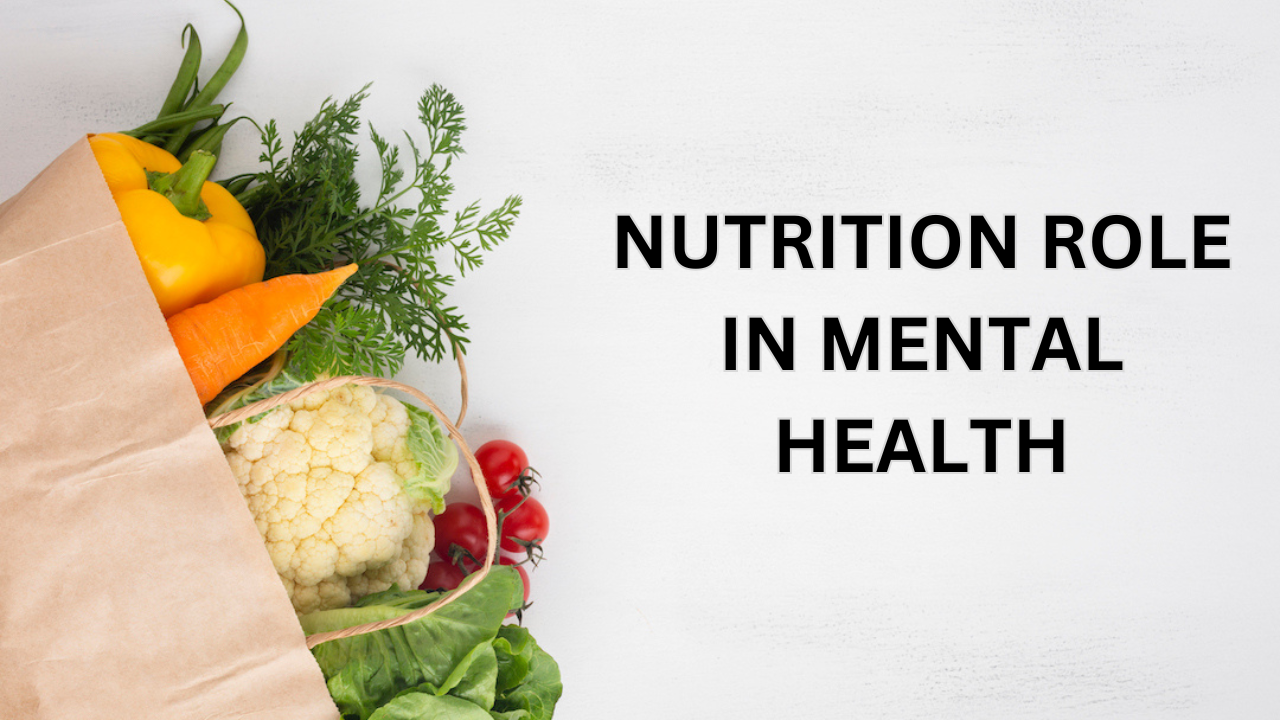Nutrition plays a significant role in maintaining mental health as the brain requires a steady supply of nutrients to function optimally a balanced diet provides essential vitamins minerals and other nutrients that influence brain chemistry mood and cognitive performance for example, omega-3 fatty acids found in fish, nuts, and seeds, support brain structure and neurotransmitter function potentially reducing symptoms of depression and anxiety complex carbohydrates such as whole grains and vegetables ensure a steady release of glucose the brain primary energy source promoting stable mood and focus.
Micronutrients like vitamins B6, B12, and folate are vital for producing neurotransmitters like serotonin and dopamine which regulate emotions and stress iron and zinc also play crucial roles in cognitive functioning and mood regulation meanwhile diets high in processed foods, sugar, and unhealthy fats are linked to inflammation and increased risk of mental health issues like depression.
The gut-brain connection emphasizes the importance of gut health as a diverse gut microbiome can positively influence mood and mental clarity consuming probiotics and fiber-rich foods fosters this balance adopting a nutrient-dense diet supports not only physical health but also enhances emotional well-being and mental resilience underscoring the profound connection between what we eat and how we feel
Nutrients and Mental Health:
Nutrients are crucial in supporting mental health as they provide the building blocks for brain function and emotional well-being key nutrients like omega-3 fatty acids found in fish and nuts support brain cell structure and promote the production of neurotransmitters that regulate mood and stress vitamins such as B6, B12, and folate are essential for synthesizing chemicals like serotonin and dopamine which are directly linked to feelings of happiness and calmness minerals like zinc and magnesium contribute to reducing anxiety and enhancing cognitive function.
A healthy gut often referred to as the second brain also plays a pivotal role in mental health with probiotics and fiber-rich foods helping to maintain a balanced gut microbiome that communicates with the brain on the other hand diets high in processed foods, sugar, and unhealthy fats can disrupt brain function increase inflammation and elevate the risk of mental health issues like depression.
Dietary Patterns and Mental Health:
Dietary patterns significantly influence mental health shaping how the brain functions and responds to emotional challenges a diet rich in whole foods like fruits, vegetables, whole grains, lean proteins, and healthy fats provides the nutrients necessary for optimal brain health these foods support neurotransmitter production reduce inflammation and stabilize energy levels all of which contribute to improved mood and cognitive function for example, the Mediterranean diet which emphasizes fresh produce, nuts, fish and olive oil has been linked to lower rates of depression and anxiety due to its anti-inflammatory and brain-boosting properties.
In contrast, diets high in processed foods refined sugars, and unhealthy fats are associated with increased inflammation and oxidative stress which can impair brain function and exacerbate mental health issues frequent consumption of such foods has been linked to higher rates of depression and poor emotional regulation balanced dietary patterns also support the gut-brain connection where a healthy gut microbiome positively impacts mood and mental clarity by prioritizing wholesome nutrient-dense meals over processed options individuals can not only enhance their physical health but also foster better mental well-being demonstrating the profound relationship between what we eat and how we feel.
Nutritional Deficiencies and Mental Health:
Nutritional deficiencies can have a profound impact on mental health as the brain relies on a consistent supply of nutrients to function effectively a lack of essential vitamins, minerals, or other key nutrients can disrupt the production of neurotransmitters impair cognitive abilities, and contribute to mood disorders for instance, deficiencies in vitamin B12 and folate can lead to feelings of fatigue, irritability, and depression due to their role in producing serotonin and dopamine low levels of omega-3 fatty acids crucial for brain cell communication have been linked to increased anxiety and depressive symptoms.
Minerals like iron, magnesium, and zinc also play critical roles in brain function an iron deficiency can cause mental fatigue and difficulty concentrating while inadequate magnesium levels are associated with heightened stress and anxiety zinc deficiencies can impair memory and emotional regulation a lack of proper nutrients can exacerbate inflammation and oxidative stress in the brain which is associated with mental health conditions like depression and anxiety addressing these deficiencies through a balanced diet or supplementation can significantly improve emotional well-being and cognitive health this underscores the importance of meeting nutritional needs to support both mental and physical resilience.
Food and Mental Health:
Food plays a vital role in shaping mental health as the nutrients we consume directly influence brain function mood and emotional well-being a diet rich in whole nutrient-dense foods like fruits vegetables, whole grains, lean proteins, and healthy fats supports brain health by providing essential vitamins minerals and antioxidants these nutrients aid in the production of neurotransmitters such as serotonin and dopamine which regulate mood and stress for example, omega-3 fatty acids found in fish and seeds are known to enhance brain function and reduce symptoms of anxiety and depression.
Conversely, diets high in processed foods, refined sugars, and unhealthy fats are linked to increased inflammation and oxidative stress both of which negatively affect brain health and may contribute to mental health disorders these foods can also cause energy crashes and impair concentration impacting emotional well-being the connection between food and mental health extends to the gut-brain axis where a healthy gut microbiome nurtured by fiber-rich and probiotic foods can promote better mood regulation and cognitive clarity by making mindful food choices and prioritizing whole nutritious foods over processed alternatives individuals can significantly improve their mental health and overall quality of life.
